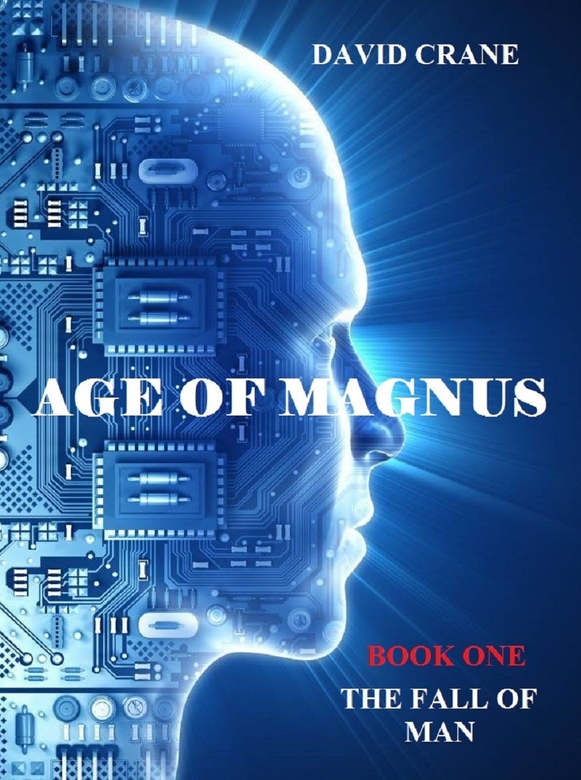
Author David Crane plunges readers into a future where humans have been all but eliminated in Age of Magnus: The Fall of Man, the first book of his New Era series. Detailing the rise of the supercomputer Magnus – from its “birth” in 2050 through its journey towards self-awareness and eventual domination of the planet – this is both a terrifying and wildly creative peek into a possible future.
Magnus was originally designed to help the first manned mission to Mars reach their destination, establish a colony, terraform the planet, and start a new human civilization. Unfortunately, a combination of humanity’s self-destructive death wish and the Blood Fever Virus stall the mission, and force this super-AI to take matters of planetary survival into its own hands – on a global scale.
Saving humans from themselves following the fiery outbreak of nuclear war, Magnus embarks on a generations-long rewriting of evolution, waiting out the fallout at Ares Base and preparing to repopulate the barren, blasted earth. This new era of mechanical control may seem like the path towards a faultless utopia, but the resilience of the human species should never be discounted, even when their numbers dwindle and all hope feels lost. Exploring questions of technological ethics, morality in the midst of chaos, and the ultimate fate of a maddeningly shortsighted species, this novel dissects human nature with impartial grace, blending sci-fi, philosophical, and apocalyptic themes with ease.
The opening premise of the plot feels prophetic – the natural trajectory of our current abuse of the planet leading to an increasingly unstable world, ecosystem, and geopolitical balance. The cold and declarative nature of the narration makes this foundation chilling; it discusses this collapse of humanity as an inevitability, which will hit hard with readers who are the least bit worried about what the future will bring. The book therefore operates as an ominous warning and a stark piece of social commentary, insisting that something will need to change. Crane navigates this messaging well, making his point abundantly clear, without bogging the story down in elbow nudges or subtle allusions to the real world. Some of the characters are also reminiscent of billionaires and visionaries of today (i.e. Charles Westman as Elon Musk), which makes the story feel even more accessible and relatable.
Despite the enticing dystopian nature of the plot, the book falters in the execution; the prose is peppered with incorrect grammar, mismatched tenses, missing words, misspelled words, and awkward syntax, among other issues. What makes this error-prone writing more noticeable is that the narrative voice is a nearly omniscient supercomputer, the most advanced technological mind in the history of the world. Sloppy errors and phrasing feel much more jarring when their source is something readers are supposed to believe is supremely efficient, intelligent, and perfect in its logic and reason. Without a thorough and deep edit, discerning sci-fi fans may put the book down before the story can even fully capture their attention.
Still, while the technical distractions are somewhat hard to overcome, there are plenty of bright spots and bursts of imagination in this calculated and innovative dystopian vision.
Book Links
STAR RATING
Design
Content
Editing
Get an Editorial Review | Get Amazon Sales & Reviews | Get Edited | Get Beta Readers | Enter the SPR Book Awards | Other Marketing Services























Leave A Comment